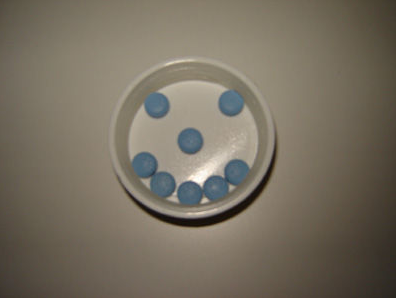Giant drug manufacturer GlaxoSmithKline announced today that it intends to stop paying doctors to prescribe more of the company’s drugs, a move that could possibly entice other large pharma companies to do the same. [More]
drugs
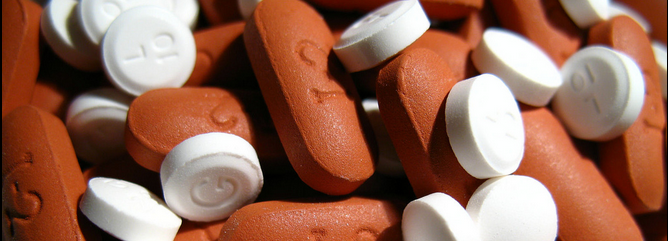
FDA Looking To Close Loophole That Slowed Safety Warnings On Generics
Imagine for a moment the tale of two friends, Jim and Joe. Jim takes Gleemonex, which makes it feel like it’s 72 degrees in your head all the time. Joe takes a generic form of the drug, which we’ll call walmonex. If the folks who make Gleemonex realize there’s a problem with the drug, they can immediately slap a warning on the product before getting FDA approval, but if the makers of the walmonex discover that same problem, they currently have to wait for the FDA and the brand-name drug makers to review the issue. This loophole is, quite obviously, a bad thing for consumers. So it’s good news that the FDA is now looking to close it. [More]

Johnson & Johnson To Pay $2.2 Billion To Settle Deceptive Marketing Claims
For nearly a decade, various state and federal agencies have been looking into Johnson & Johnson’s marketing of the drugs Risperdal, Invega, Natrecor, and others, claiming the company was putting consumers at risk by paying kickbacks to doctors and pharmacists to suggest these drugs to patients and for pushing unapproved uses for these medications. Today, the Justice Dept. announced that J&J will pay out more than $2.2 billion to settle these claims. [More]
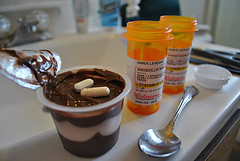
FDA Suggests Tightening Access To Painkillers Like Vicodin
Yesterday the U.S. Food and Drug Administration recommended that the rules regarding drugs with hydrocodone, which is often in painkillers like vicodin, be a lot tighter. It suggests that the drug be reclassified along the level of other opioid painkillers like oxycodone and morphine. [More]

FDA Approves First Pre-Surgical Breast Cancer Drug
While many of the hundreds of thousands of people who are diagnosed each year with breast cancer go through radiation or chemotherapy before surgery, until now drugs aimed at treating breast cancer were not FDA-approved for use in the pre-surgery stage. [More]

Great, Now There’s An Actual Zombie Drug Eating Its Way Through Human Flesh
Now that that whole bath salts craze has died down, we’d expect the zombification of our population to sputter out as well. But kids these days, well they keep finding new ways to freak everyone out. Namely a new designer drug that’s eating its way through human flesh and turning people into stumbling, incoherent zombies. Sigh. [More]
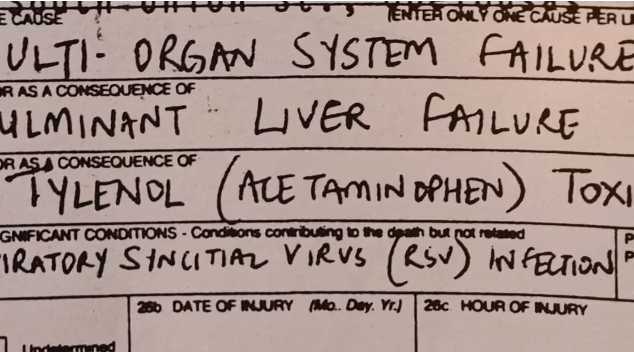
Children Died Because Johnson & Johnson Insisted On Selling Two Types Of Kids’ Tylenol
At the intersection of bad marketing, inept regulation, and unwitting consumers, you’ll find the graves of young children, just some of the infants who, according to a new report from ProPublica, have become ill over the decades because Johnson & Johnson and other makers of acetaminophen-based painkillers insisted on selling two youth-targeted varieties of the drug while the FDA did what it does best — nothing. [More]
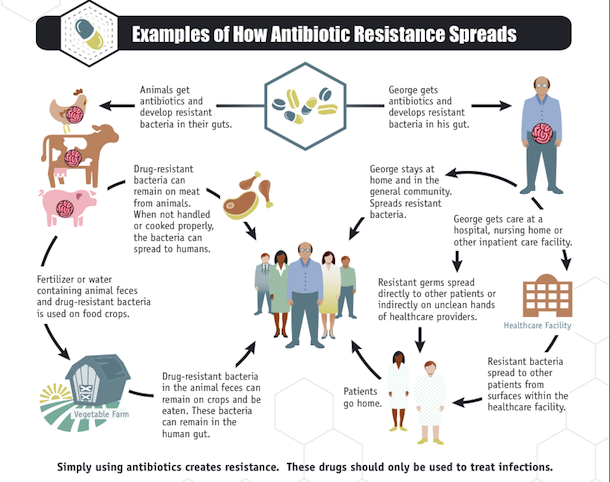
CDC: 2 Million Americans Get Sick From Antibiotic-Resistant Infections Every Year
While livestock farmers around the country continue to feed medically unnecessary antibiotics to their animals for the sole purpose of encouraging growth, millions of Americans are falling ill — and thousands dying — every year from bacterial and fungal infections that are resistant to current medication, claims a new report from the Centers for Disease Control. [More]
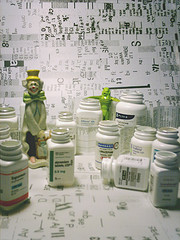
Do Prescription Drug Coupons Lead To Higher Insurance Rates For Everyone?
If you’ve been to a website for a brand-name prescription drug in the past few years, you’re probably familiar with coupons offering huge discounts or copayment assistance to patients. For the drug maker, it’s a way to hopefully steer customers away from lower-cost alternatives, and it may seem like a good deal to the consumer. But a new report says that in the long run, these coupons could ding the bank accounts of both those who use the coupons and the rest of us who are just trying to keep up with our insurance premiums. [More]

Do Food Regulators Care If Foreign Farmers Use Veterinary Drugs Banned In The U.S.?
Later this week, the United Nations food standards agency will be meeting in Minneapolis to discuss, among other things, standards for ten veterinary drugs that are banned for use in the U.S. but not globally. Fearing that continued use of these drugs by farmers in other countries could result in these banned chemicals still reaching the American market, a group of consumer advocates have called on federal regulators to not only take a tougher stance, but to stop encouraging the use of these drugs elsewhere. [More]
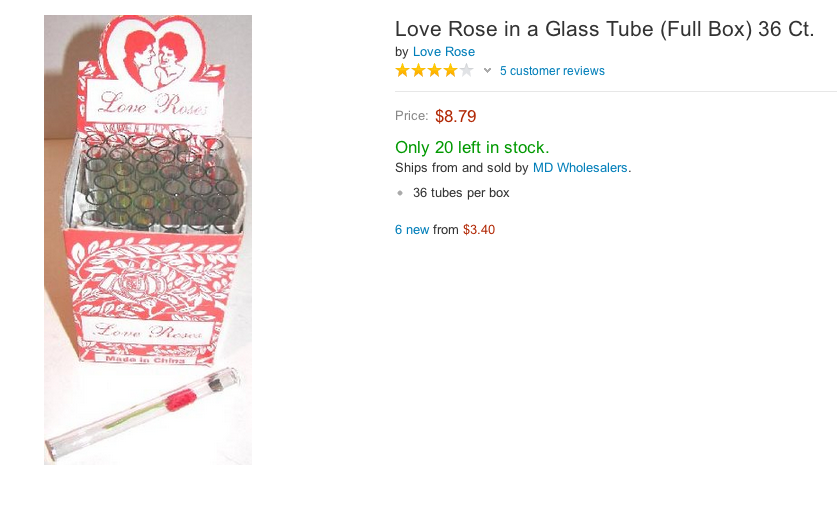
Maybe The Most Depressing Amazon Listing Ever (Unless You’re In The Market For A Crack Pipe)
People employ all manner of odd devices in the smoking of illegal drugs like crack and crystal meth, but there’s something particularly heartbreaking about realizing that people are using these novelty “love roses” as an affordable way to ruin their lives. [More]
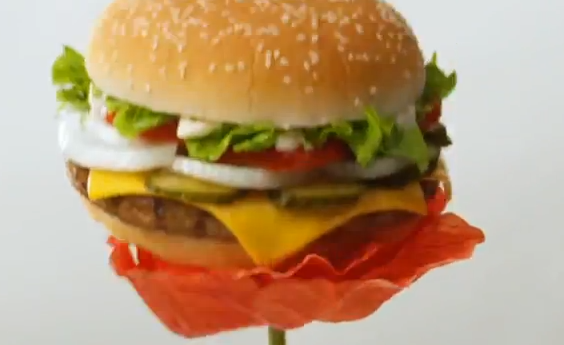
Burger King Russia Positions Whopper As Substitute For Opium And/Or McDonald’s
People are often quipping that fast food has a drug-like quality that keeps customers coming back for more, but the folks at Burger King’s Russian operation are making the connection quite literal, while at the same time apparently poking fun at McDonald’s. [More]

Snow Cone Means Something Else Entirely When The Ice Cream Truck Driver Is Peddling Drugs
Whether you love the jingle-jangle of the ice cream truck cruising your neighborhood or can’t stand it, for most of us it’s a mobile sign of childhood, sweet treats and hot summer days. So it’s a bummer that someone could (allegedly) turn it into a roving drug dispensary. Cops busted a Brooklyn man recently accused of selling cocaine — alongside the real snow cones and ice cream — from his ice cream truck. Innocence = lost. [More]
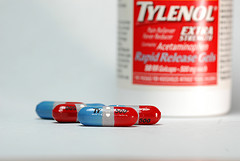
FDA Links Acetaminophen To Nasty, Possibly Fatal Skin Reactions (But Try Not To Freak Out)
Because no weekend can get started without news of a possible scary drug interaction, the FDA has issued a consumer alert warning that, in extremely rare cases, use of the popular over-the-counter painkiller acetaminophen (used in Tylenol and many others) can cause “rare but serious skin reactions,” including three serious skin diseases with symptoms like rash, blisters and widespread damage to the surface of skin. Yuck. [More]
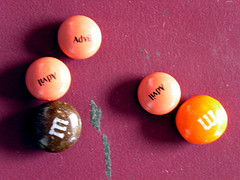
Why Does Anyone Ever Buy Brand-Name Painkillers?
For everyday over-the-counter drugs like painkillers or allergy medicine, do you pick up the brand name, or a generic? Even if the inactive ingredients and binders are slightly different, the brand-name and store-brand meds that sit side-by-side on the shelf should have the same effects. One costs a lot less. So why does anyone buy name-brand over-the-counter drugs? [More]
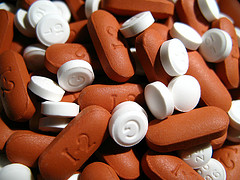
Supreme Court Rules FTC Can Challenge Deals Intended To Delay Release Of Generic Drugs
When a generic version of a drug comes on the market, the holder of the brand-name drug’s patent stands to see a steep drop in sales as many customers switch to the lower-price option. Thus, some companies will go to great lengths to delay the release of generics. One such method, dubbed “pay-for-delay,” involves the patent-holder suing manufacturers of generics and then settling for millions of dollars with the agreement that the generic suppliers will hold off on releasing their product. Today, the U.S. Supreme Court ruled that the Federal Trade Commission has the right to challenge these sorts of deals. [More]

Silly Me, Expecting My Mail-Order Pharmacy To Pay Attention To My Meds
Don’t expect your mail-order pharmacy to look out for you or for your health. That’s what reader Kathleen learned when her auto-refill prescription got auto-refilled, in spite of her new and exciting prescription for the same medication in a higher dose. Isn’t the point to having everything run by benevolent computers that they’re smarter than we are, and don’t make silly human errors? [More]


